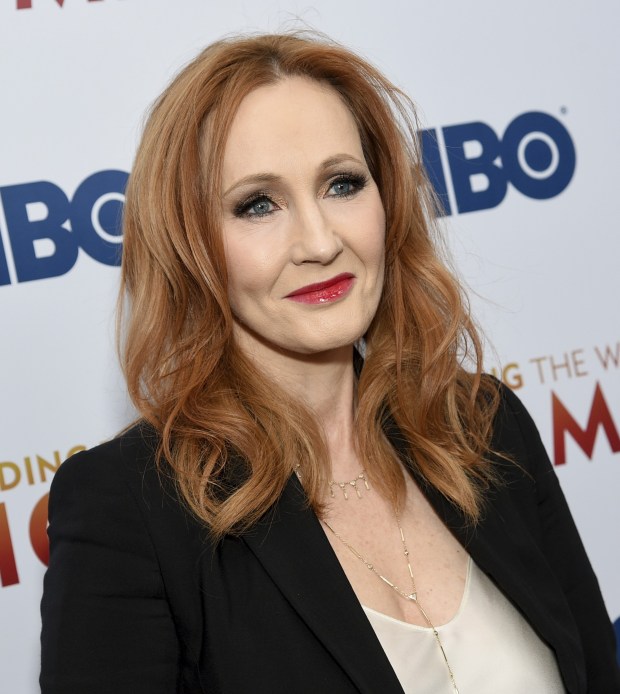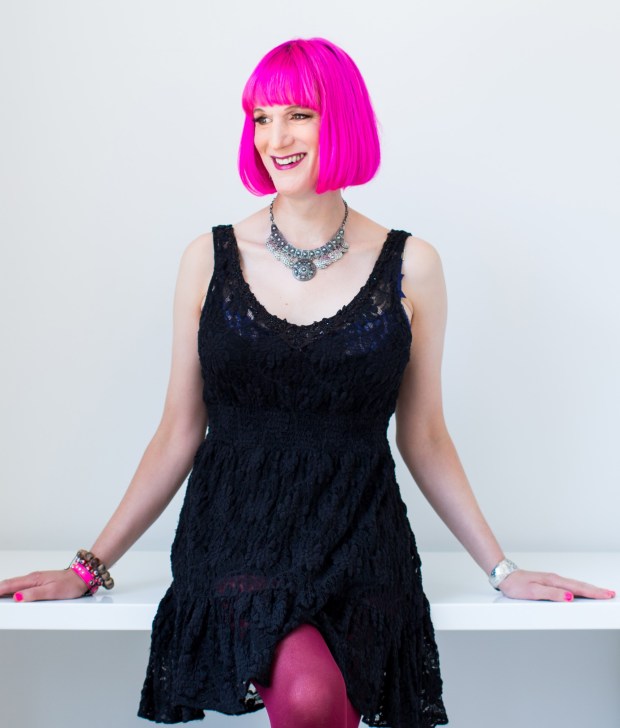A lot of things have changed since the Tony Award-winning play “Harry Potter and the Cursed Child” settled into San Francisco’s Curran Theater for an open-ended run in late 2019.
First the COVID-19 pandemic shut down the show (and theaters in general) in March 2020. And when “Cursed Child” eventually started up again this January, with its official reopening night pushed back to Feb. 24, what had been a five-hour play in two parts has been trimmed down into a single 3½-hour play for its return to San Francisco, Broadway and elsewhere.
Meanwhile a bigger change was going on behind the scenes. During the time that the show was closed, J.K. Rowling, author of the Harry Potter books, has become the public face of the “gender critical” movement in her native United Kingdom, which advocates against legal and societal recognition and accommodation of transgender people.
Far from fading away, the controversy has only intensified as Rowling has continued to issue Twitter posts and essays since the summer of 2020 portraying trans recognition as harmful to women and that “erasing the concept of sex removes the ability of many to meaningfully discuss their lives,” though she asserts that she herself is not anti-trans and has trans friends.

Many “Harry Potter” performers such as Daniel Radcliffe, Emma Watson and Rupert Grint were quick to speak out against Rowling’s comments and affirm their support for the rights of trans people. Added Radcliffe, “I realize that certain press outlets will probably want to paint this as in-fighting between J.K. Rowling and myself, but that is really not what this is about, nor is it what’s important right now.”
Meanwhile, the Potter franchise forges onward, with another “Fantastic Beasts” movie coming out this spring, a reunion special of the movies’ cast that debuted on HBO Max in January (Watson, Grint and Radcliffe all appear in the special, which limits Rowling’s involvement to a previously taped interview), and the return of the revamped “Cursed Child” on stage.
The play wasn’t written by Rowling but by Jack Thorne, based on a story by Rowling, Thorne and director John Tiffany. Still, particularly in a trans- and LGBTQ-friendly market such as San Francisco, the play’s return necessitates some difficult conversations about how much a popular franchise can be separated from the actions of its originator.
“I think everybody has to decide how they’re going to approach the question of separating the author from the work,” says Charlie Jane Anders, an award-winning author, trans woman, cofounder of the blog io9.com and host of the San Francisco reading series Writers with Drinks. “But in the case of a living author, who is currently using her power to attack vulnerable, marginalized people, I would not feel comfortable giving her any financial support right now.”
“If money is going to her from the show, that is hurting trans people, period,” says Chris Steele, a trans nonbinary performance artist, writer and activist who cofounded the San Francisco queer theater collective Poltergeist Theatre Project. “It just feels like we’re continuing to live in the fantasy rather than the real world of the thing, in which the stuff she is saying is contributing to an environment where trans femme people have life expectancies that are decades shorter than anyone else.”
To Bay Area writer, performer, activist and biologist Julia Serano, who is a trans woman, Rowling is a very different case from other celebrities who occasionally make transphobic jokes or comments. “There’s not a political agenda behind it. They have certain attitudes and make comments sometimes. But J.K. Rowling has most demonstrably aligned herself with political positions and movements that are actively trying to mandate trans people out of existence.”
There are no reports of organized protests against “Cursed Child” productions in New York or San Francisco, and it would be difficult to gauge any impact on attendance at a time when the COVID continues to affect theater productions in general.
When asked for comment, the producers of “Cursed Child” issued this statement via email: “San Francisco was chosen as the exclusive West Coast location for ’Harry Potter and the Cursed Child’ because of its rich cultural diversity and commitment to the arts. At the heart of our story are lessons of tolerance, acceptance, and understanding — core values that are reflected and embraced in every aspect of the production. Theater is part of the lifeblood of this community, and we are humbled the city has welcomed the show with open arms.”
But while many of Rowling’s critics still cherish aspects of her most famous creation, they still feel the author has crossed a line.

“I think there are many ways to love Harry Potter without giving Rowling a penny,” says Anders. “I’m very grateful to the Potter books for helping to create a whole new generation of readers, and for helping to save bookstores at a crucial time. But there is so much wonderful fantasy being published now, by marginalized authors, with worlds that are both more vibrant and more inclusive than Rowling’s.”
Steele, who says they “devoured the books as a kid,” agrees: “I took things from the books that matter to me, but there are other ways to get those same lessons.”
Says Serano, “I’ve seen people say things like, ‘Well, for me, Harry Potter was this queer or trans metaphor of what it’s like to be a kid living in a world where nobody understands why you’re special and they treat you bad, but then you go to a magical place where people understand that you’re special and appreciate you for that.’ And yeah, I guess you could read that as a queer or a trans metaphor. I’ve also seen people who said, ‘I was looking forward to sharing the Harry Potter books with my kids when they grew up, but there’s no way I’m doing that now.’”
To Serano, what’s most important is not to shy away from really examining the problematic side of beloved cultural artifacts and the people behind them. “Maybe this can become a teachable moment,” Serano says. “If it can generate conversations, then maybe there is some good that comes out of it.”
Contact Sam Hurwitt at shurwitt@gmail.com, and follow him at Twitter.com/shurwitt.
‘HARRY POTTER AND THE CURSED CHILD’
By Jack Thorne, based on an original story by J. K. Rowling, John Tiffany, and Thorne, presented by The Curran
When: Now in previews; main run is Feb. 24-Sept. 4
Where: The Curran, 445 Geary St., San Francisco
Health & safety: Attendees 12 and over must have proof of vaccination and booster, those under 12 must have proof of negative COVID test, ticketholders are asked to wear masks inside the theater
Tickets: $79-$299 (subject to change); sfcurran.com or sf.harrypottertheplay.com.
Source: www.mercurynews.com
